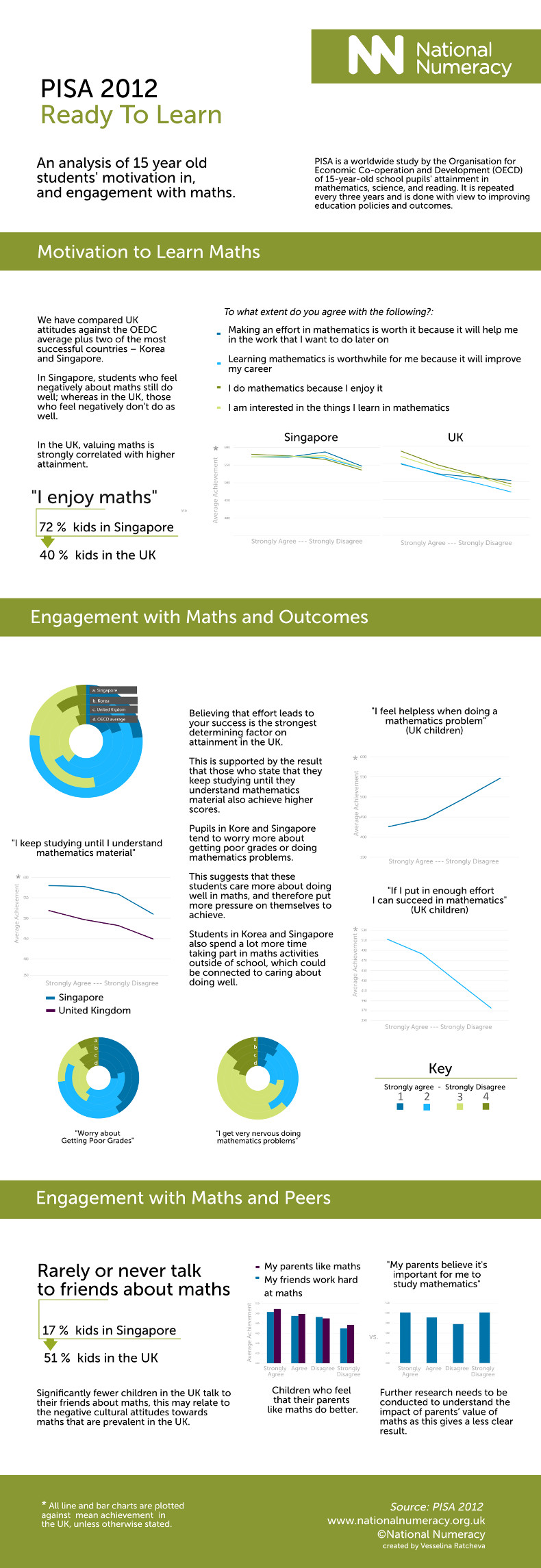One of the key findings relating to mathematics is that in many countries, student motivation, self-belief and dispositions towards learning the subject are positively associated not only with how well they perform in mathematics, but also with how much better these students perform compared to other students in their school.
There is evidence of the positive impact of parental engagement on student outcomes, with parents’ expectations being strongly and positively associated not only with students’ mathematics performance but also with positive dispositions towards learning.
The findings show much of what National Numeracy would expect to see, that attitude – perseverance, motivations, and self-belief – can help to overcome other disadvantages. They also support the view that effort is the key to success, not innate talent.





